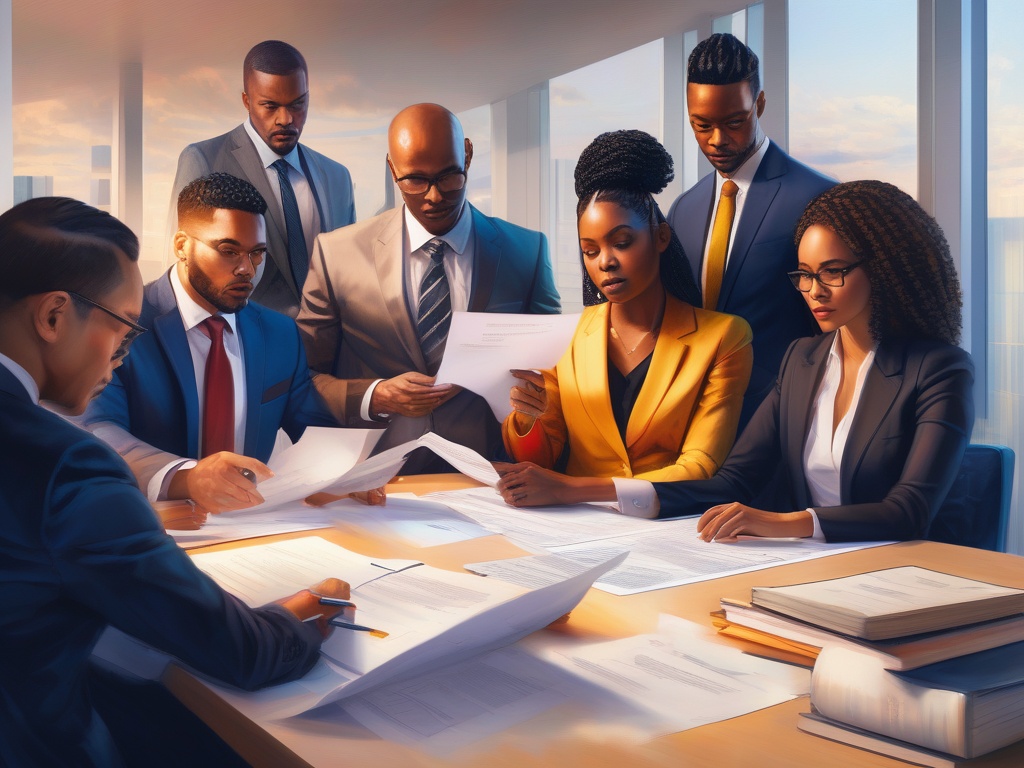
Unveiling Your Rights: The Power to Protect Yourself and Assert Justice
Understanding your legal rights is not just about knowing what you are entitled to; it’s about harnessing that knowledge to protect yourself from injustice and to confidently navigate the complex legal landscape. In a world where legal systems can be intricate and intimidating, being aware of your rights grants you the power to stand up against unfair treatment, discrimination, or exploitation. Whether you’re dealing with employment issues, consumer rights, or personal safety, recognizing your entitlements is the first step towards asserting your dignity and securing justice.
Knowing your rights can be a game-changer in various scenarios. For instance, your right to privacy safeguards your personal information from unwarranted intrusion, while your right to fair trial ensures that justice isn’t just an ideal but a tangible reality. These rights act as a shield against abuse and as a sword to challenge wrongful actions. When you understand the legal protections available to you, you are better equipped to demand accountability and seek remedies. This awareness also fosters a sense of confidence, encouraging you to stand up for yourself and others, thereby promoting fairness and equality within society.
The Shield of Freedom: Essential Legal Rights That Safeguard Your Daily Life
In a world increasingly driven by digital connectivity and constant surveillance, the right to personal privacy stands as a vital shield against unwarranted intrusion. This right empowers individuals to control their personal information, from online data to private communications, ensuring that their autonomy remains intact amidst the pervasive reach of technology. Recognizing this right means understanding that any invasion without consent is not only unethical but often unlawful, providing you with a legal tool to challenge breaches and safeguard your dignity. Whether it’s protecting your digital footprint or defending your physical space from unwarranted searches, this right acts as a formidable barrier against abuse and a foundation for personal freedom.
Everyday life is filled with moments where discrimination and bias threaten your sense of fairness and safety. The right to equal protection under the law guarantees that all individuals, regardless of race, gender, religion, or background, are entitled to fair treatment and justice. This right is a cornerstone in combating systemic inequalities, giving you a legal basis to challenge unfair policies, discriminatory practices, or unjust actions by authorities or private entities. By understanding this fundamental right, you are not only empowered to defend your own dignity but also contribute to fostering a more equitable society. It serves as a reminder that justice isn’t merely an abstract ideal but a tangible shield actively working in your favor at every crucial juncture of your daily life.
Empowerment Through Knowledge: Unlocking the Legal Rights That Define Your Liberties
In a society driven by complex legal frameworks, knowledge is your most potent weapon. Recognizing your rights transforms passive citizens into active participants in safeguarding their liberties. When you are aware of your legal protections, every encounter with authorities, corporations, or institutions becomes an opportunity to assert your dignity and demand fair treatment. This awareness is not merely about avoiding injustice; it is about taking control of your destiny and ensuring that your freedoms are preserved against encroachments that might seem subtle but are profoundly impactful. The journey to empowerment begins with understanding how legal rights serve as a foundation for personal sovereignty in everyday situations, from workplace disputes to digital privacy issues.
Knowing your rights is only the first step — the real power lies in how you apply that knowledge. This involves a strategic approach to recognizing violations and taking deliberate steps to defend yourself effectively. For instance, understanding the nuances of your right to refuse searches or to access legal counsel can significantly influence outcomes when facing law enforcement or administrative procedures. Equally important is the ability to differentiate between rights that require immediate action and those that necessitate legal counsel or official channels. Educating yourself about the proper procedures, available resources, and legal avenues ensures that you are not merely aware of your rights but are also prepared to exercise them confidently. In doing so, you transform legal knowledge from abstract principles into a formidable shield and sword, empowering you in moments of uncertainty and confrontation.
By fostering a deep understanding of your legal protections and learning how to wield them effectively, you cultivate a sense of resilience and independence. This comprehensive awareness enables you to challenge injustices, advocate for yourself and others, and participate more actively in the democratic process. Ultimately, the true essence of empowerment through legal knowledge is about asserting your freedoms with clarity, courage, and conviction — turning rights into actionable tools that uphold your liberties and contribute to a fairer society.
